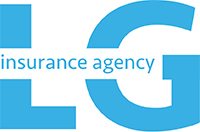New Jersey homeowners, no matter their property location, should have some form of flood insurance in addition to their homeowner’s policy.
The risks of flooding and flood damage far outweigh the costs of adding supplementary insurance to your policy, but which supplements should a homeowner be concerned about? Does location make it more necessary? What’s the difference between policies offered by the National Flood Insurance Program and private policies? Are there newer and better policies, or more restrictions in place since the damage done by Hurricane Sandy? These questions and more can be answered in talking with a professional knowledgeable about both flood insurance policies and home insurance policies, like those at LG Insurance.
Some homeowners may assume that because they don’t live near the coast or a river, they have less cause for concern about securing flood insurance. Potential property owners may be surprised to learn that in Monmouth County, for instance, Freehold Township has some very high risk flood areas. When looking at a map of Freehold there are no obvious rivers or lakes that would insinuate risk, but even the smallest water sources- such as the various creeks that flow out to the Metedeconk- have the potential for flooding, creating high-risk areas in their vicinity. From the Shark River, to the Shrewsbury, and from the Navesink to all of the other rivers and tidal bodies- each presents a risk of flooding that can cause expensive damage to your home or business. Just a few inches of water can cause catastrophic damage that can cost thousands of dollars to fix.
Five years ago, the most well-known and widely reported on insurance policy used in our area was from the National Flood Insurance Program, backed by FEMA. This policy had a maximum coverage of $250,000 for dwellings and $100,000 for contents. There was no coverage in that policy for things like loss of use, there were extreme difficulties in making claims, prohibitively high deductibles, and significant gaps in coverage. When Hurricane Sandy hit, many of those policyholders were dismayed to learn that their insurance did nothing to assist them with additional costs while repairs were being made and they were forced out of their homes. The lost settlement in many of these cases was on actual cash values rather than the replacement costs. The frustrated homeowners had no choice but to make due with what coverage they had, but many were left holding the bag for significant costs beyond what their insurance covered.
Today, however, there are a significant number of private insurers who have responded to events like five years ago by offering coverage for flooding related events. Options for coverage available with these private policies are significantly higher, and can include increases in value upwards of two billion dollars on dwellings, and upwards of half a million dollars for contents. There is also coverage available that tackles loss of use while homes are being repaired, additional structures on property, and more. Essentially, insurance professionals are able to offer significantly better coverage for losses caused by flooding than they ever were able to offer five years ago. Professionals like those at LG Insurance utilize the private markets to help clients put insurance policies in place that best protect their homes.
Though the areas most typically thought to be at risk for flooding are along the shorelines, New Jersey comprises a broad range of areas that are capable of flood damage, and generally at least 25% of flood insurance claims come from those outside the areas considered high risk. Flood insurance is a requirement in order to get a loan in some flood zones, but no matter where a property is located in New Jersey, flood insurance is advisable. Flash flooding, drain clogs, and other events can mean flooding in even the most low risk areas. Water will travel and can affect your home regardless of location.
Any property in a high-risk area is required to be under the National Flood Insurance Program umbrella for a flood insurance policy. Most properties with conventional or VA loans are additionally eligible for private flood insurance policies as well. Private loans can be written at significantly higher limits, and can be enhanced with coverage for additional losses, such as loss of use, or pool clean-out and refill coverage, mold cleanup and recovery, and more.
Ultimately, knowing your flood zone, using the maps to determine risks, and engaging with a professional insurance agent -like the team at LG Insurance- is the best way to assure that you have the policy that allows for the most complete and comprehensive coverage at the best prices. Professionals have relationships with a variety of companies that offer specialized policies and cover many of the expenses that you may not even consider come in the aftermath of a flooding event. These pros have seen the changes in options available in response to events like Hurricane Sandy and Tropical Storm Fay, and know how to get you the personalized coverage your property needs. Flooding can be a devastating event, but recovery doesn’t have to be with the right insurance professionals on your side.


